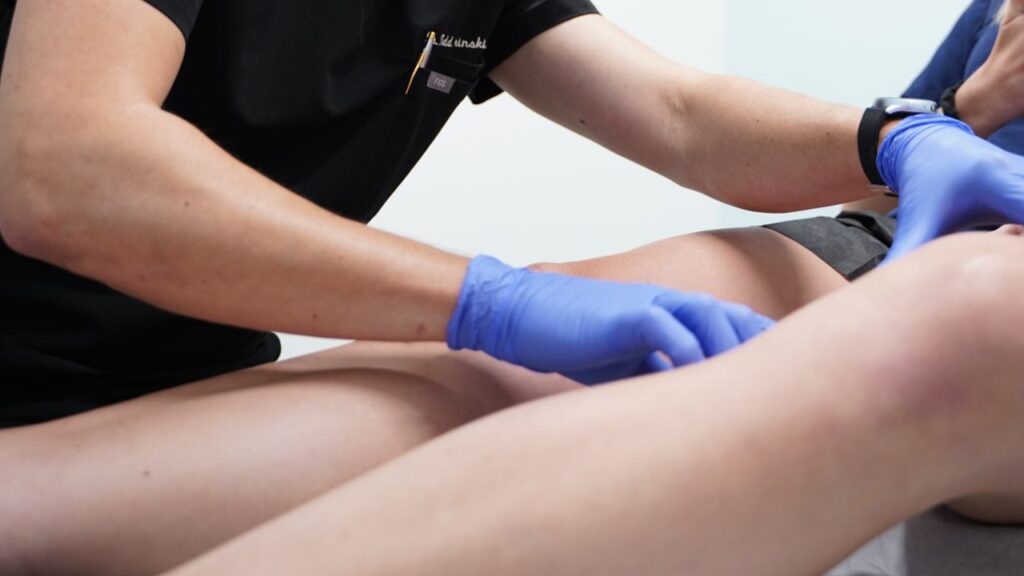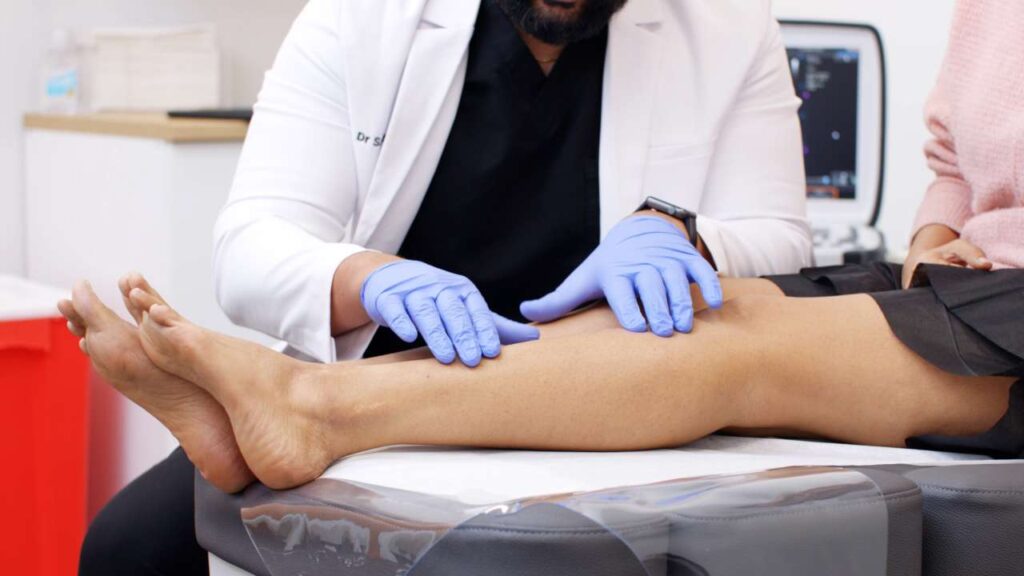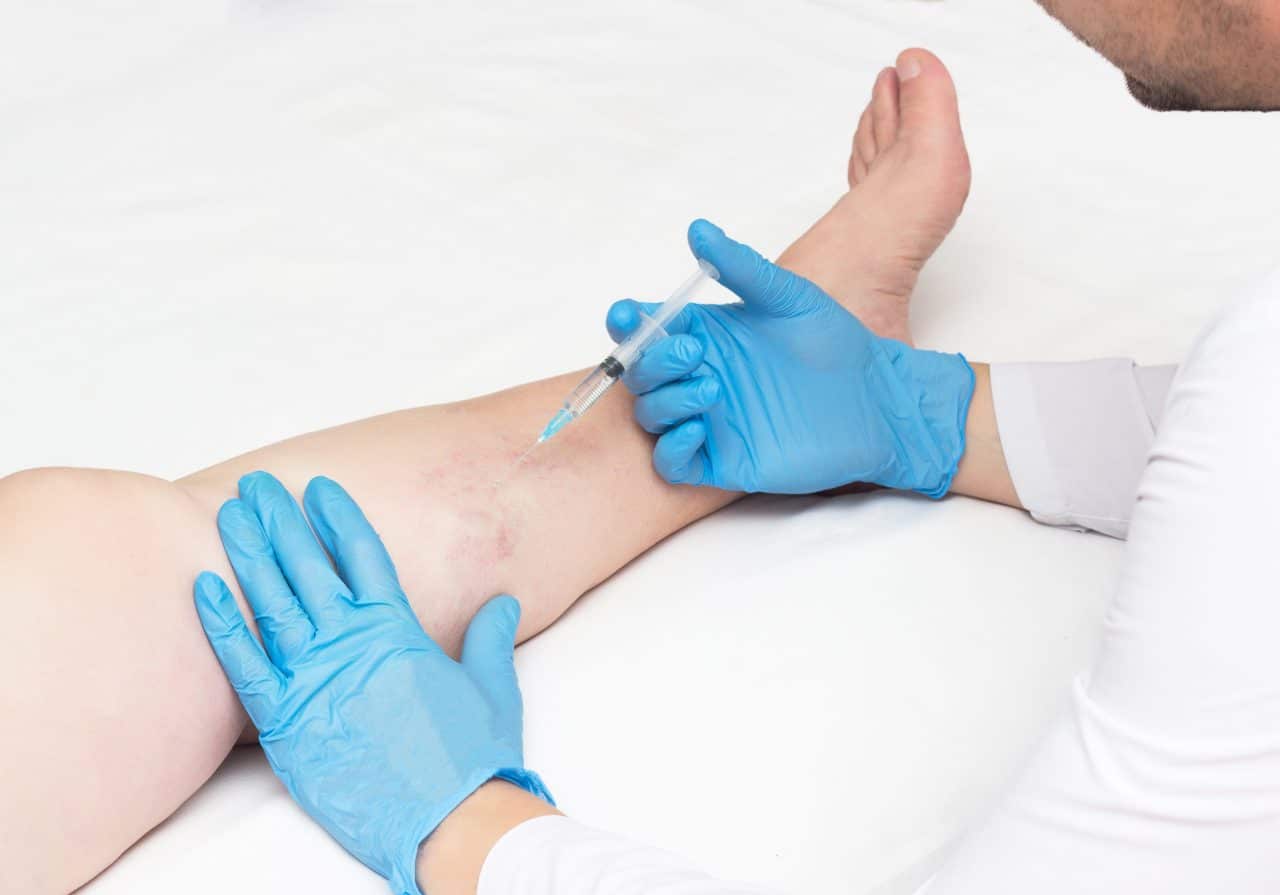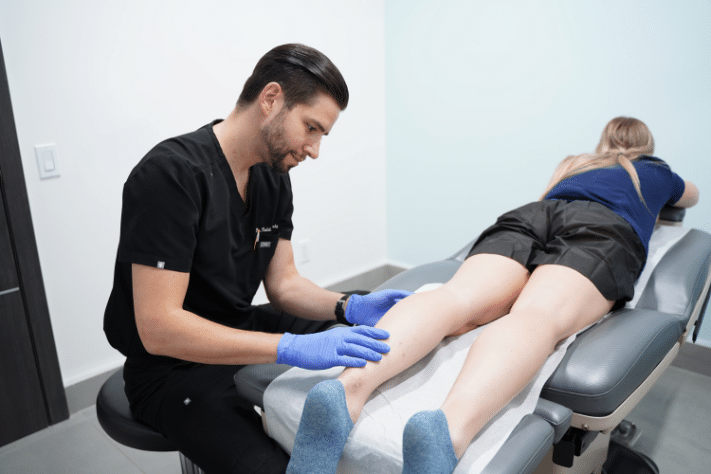Varicose veins affect millions of people, often causing discomfort, swelling, and self-consciousness. Fortunately, a range of modern treatment options are available that are minimally invasive and highly effective. If you are searching for a vein treatment clinic, wondering about the varicose vein treatment cost, or simply asking, Where can I find vein treatment near me?, this guide will answer your questions.
What Do Vein Centers Do?
Vein center is a specialized clinic that deals with the diagnosis and treatment of diseases of veins, such as spider veins, varicose veins, chronic venous insufficiency. When you have wondered, What do vein centers do?, the answer is encompassing services. These facilities more often than not have the latest diagnostic equipment available like the Doppler ultrasound and an array of curative options like the endovenous laser therapy (EVLT), sclerotherapy, the radiofrequency ablation and the minimal invasive surgical intervention.

Independent physicians of vascular diseases, or rather phlebologists as they are also called, evaluate the health of respective patients and develop individual treatment plans. Their aim is not merely to achieve a cosmetic benefit but to get rid of symptoms like leg pain, cramps and tirelessness.
Varicose Vein Treatment Cost: What to Expect
The question about the cost of varicose vein treatment is one of the most frequent questions that are asked by the patients. There could be a wide difference in costs and this could be influenced by a number of factors such as:
● The severity of the vein disease
● The number of veins being treated
● The type of treatment chosen
● Your geographic location
Finding a Vein Treatment Clinic
It is always important, when searching a facility that offers treatment of veins, to select a practice dealing with veins as opposed to general practice. Research clinics that offer board-certified doctors who treat veins, modernized technology, and positive patient feedback. There are a lot of clinics where you are able to have free consultation to discuss your symptoms, treatment options and cost estimation.

Go online and get a list of local providers who can treat the vein by searching online for vein treatment near me, however do not rely on location. Check on the qualifications of the vein treatment doctors, inquire on their exposure to the treatment of the venous disease and what methods do they apply in their treatment.
The importance of Early Treatment
In case of non-treatment, varicose veins may aggravate with time and might result in more severe complications like blood clots and skin ulcers. Treatment in a quality vein clinic in the early stages of detection can be used to make your life better and adopt a lifestyle free of any complications.
Conclusion
Whether you're researching varicose vein treatment cost, trying to understand what vein centers do, or looking for the best vein treatment near me, it’s important to consult experienced vein treatment doctors who can guide you through the process. With the right care, you can restore both comfort and confidence in your legs.
Varicose veins and spider veins are more than just cosmetic concerns they can indicate underlying venous insufficiency, a medical condition that requires professional attention. If you’re experiencing leg pain, swelling, heaviness, or visible vein issues, you might be wondering: Are varicose veins covered by insurance? The answer depends on the severity of your symptoms and the type of treatment needed.
Are Varicose Veins Covered by Insurance?
A variety of insurance packages, such as Medicare and personal insurers, usually cover the costs of vein treatments when they are medically necessary. To take an example, when varicose veins lead to pain in legs, ulcers, or large swelling, your doctor might recommend the treatment not only to treat the manifestation but also to prevent other possible complications. When this occurs, the insurers usually demand a doppler ultrasound to diagnose the problem and ascertain that one has effects and may demand records of the conservative efforts (such as donning the compression hose) before they accept the a high tech treatment.
Nevertheless, beauty practices particularly against spider veins are seldom covered. Other precautionary procedures such as sclerotherapy can also be termed elective unless one has a functional health condition.

What Kind of Doctor Is a Vein Specialist?
A vein specialist is usually What Kind of Doctor Treats Varicose Veins inside the field of venous disorders. The most typical ones are:
● Vascular surgeons are specialists in surgery and non-surgical options of operating on the veins.
● Interventional radiologists are doctors who specialize in seeing-based vein treatment.
● Phlebologists are doctors concentrating entirely on diagnosis and treatment of venous disorders.
In case you are asking, who treats varicose veins, these three specialists can do it the best. There are instances, where dermatologists and general practitioners invest in vein care, in particular, cosmetic procedures, such as laser therapy.
Vein Treatment Specialist: What to Expect
The treatment specialist will perform a thorough assessment such as medical history, physical, usually by way of duplex ultrasound. They will advise the treatment plan, which consists of the following based on the results:
Endovenous laser ablation (EVLA) or radiofrequency ablation (RFA) minimally invasive ways to seal malfunctioning veins.
● Sclerotherapy an injection depends on the treatment method that is frequently practiced on spider veins and mini varicose veins.
● VenaSeal a medical sealant that closes faulty veins.
● Microphlebectomy -the varicose veins are removed with small cuts.
Modern vein treatments for spider and varicose veins are largely outpatient and need minimal recovery time and, often, have prompt outcomes.

Centers for Vein Treatment in New Jersey
There are a number of leading centers of vein treatment in New Jersey where board-certified vascular specialists and phlebologists work. There are centers at which the latest non-surgical vein treatment technology and state of the art diagnostic tools are provided.
When choosing a provider, look for:
● Court respectable medical boards
● The exposure to the practice of cosmetic and medically necessary processes
● Insurance confirmation and assistance within the firm
Regardless of whether you find that your varicose veins are painful and need to be treated or merely cosmetically enhance spider veins, the vein treatment specialist must be visited. They are in a position to establish the cause behind it and direct you to insurance coverage opportunities.
Final Thoughts
If you’ve been asking, Are varicose veins covered by insurance?, the key is whether your symptoms impact your health. Medical necessity is often the deciding factor. With proper diagnosis and the right care team, effective vein treatments for spider and varicose veins are within reach. Don’t hesitate to consult a vein specialist or explore centers for vein treatment in New Jersey to start your journey toward healthier legs.
Let’s be honest; most of us don’t even consider our veins till something starts to appear or we experience a bit of discomfort. Maybe it’s leg ache, swelling, or the squiggly blue veins (yep, varicose veins!) that seem to pop up out of nowhere. That’s when you would possibly begin thinking, “Should I see a vascular health practitioner?” Let’s break it down in the simplest way possible.
So, what exactly is a vascular doctor?
A vascular doctor (also called a vein treatment specialist) is a medical professional who deals with problems related to your blood vessels, especially veins and arteries. They’re the go-to professionals in treating varicose veins, blood clots, or poor circulation in your legs and feet.
When should you actually see a vascular doctor?
Here are some clear signs it’s time to make that appointment:
1. Your legs are always swollen or achy.
If your legs feel worn-out, heavy, or swollen all the time (in particular after standing or sitting for lengthy hours), that’s no longer simply “growing old.” It could be a signal of a vein hassle. Vascular doctors can figure out what’s really happening and help you feel better.

2. You see bulging or twisted veins.
Are those rope-like blue or crimson veins popping out of your legs? Those are varicose veins, and they’re now not only a beauty difficulty. They can hurt, itch, or maybe bleed. That’s a major cause to see a “vein treatment specialist.”
3. You have leg ulcers or skin discoloration.
Sores that won’t heal, dark patches, or thickened pores and skin around your ankles can be signs of poor blood flow. That’s a purple flag, and a vascular medical doctor needs to take a look.
4. You feel burning, throbbing, or cramping.
If your legs or feet burn, throb, or cramp, in particular at nighttime, it could be associated with blood flow. Don’t forget about it!
5. You have a family history of vein problems.
If your dad and mom or siblings had varicose veins, blood clots, or other flow troubles, you’re much more likely to get them, too. Seeing a vein expert early should help prevent future problems.

What kind of treatments are out there?
Thankfully, most vein remedies nowadays are brief, non-surgical, and accomplished right within the medical doctor’s office.
That depends on the type of treatment, how many veins need fixing, and whether your insurance covers it. On average, the cost of varicose vein treatment can range from $200 to $3,000 per session. Some treatments may need more than one session. Good news? Many insurance plans cover it if the veins are causing pain or medical issues (not just for cosmetic reasons).
Meet the best vein experts.
If you’re unsure where to start, please don’t hesitate to contact our vein experts. They’ll see you through everything from your symptoms to your treatment options in a way that’s super easy to understand. No pressure, just real help from real people who care.





